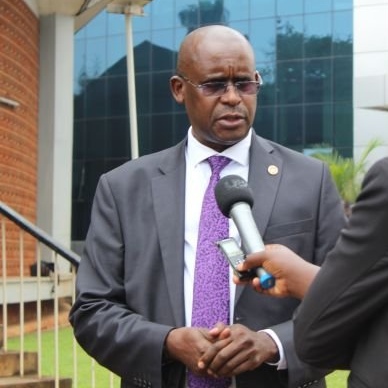By Our Writer
Winston Agaba, Managing Director of Uganda Broadcasting Corporation government funded broadcasting media power house has admitted to paying four ghost workers on UBC’s payroll for years.
He says the four unnamed ghosts kept drawing a salary from the Corporation, without doing any work, saying he was only alerted to this fraud after the payroll audit conducted by Ministry of Public Service.
He made the admission while appearing before Parliament’s Committee of Commissions, Statutory Authorities & State Enterprises (COSASE), where MPs tasked UBC officials to explain why they made payment to non-existent staff, and also operated three different payrolls where staff did the the same roles, but were paid differently.
UBC was founded as a result of the “Uganda Broadcasting Corporation Act, 2004”, which merged the operations of Uganda Television (UTV) and Radio Uganda. It started broadcasting on November 16, 2005.
Uganda Television and Radio Uganda (the current Uganda Broadcasting Corporation) was born in 1963 one year after Uganda’s independence. However, radio was born in Uganda in 1954 and TV came in nine years after that. Its main aim was to broadcast through both mediums to the whole country as the national broadcaster.
After independence till the mid 1980’s Uganda was faced with a lot of economic hardships. As a result many institutions including the national broadcaster suffered a general deterioration. It is with this background that the Ugandan Government saw the need to restructure the former Uganda Television and Radio Uganda.
As a result Parliament passed the Uganda Broadcasting Corporation Act that established the Uganda Broadcasting Corporation in 2005. This transformed the former UTV and Radio Uganda into the now existent Uganda Broadcasting Corporation. The Corporation started its activities on 16th November, 2005. The Corporation is fully owned (100%) by the Government of Uganda and carries out its activities for and on behalf of the Government. It therefore requires government funding in order to sustain its operation.



